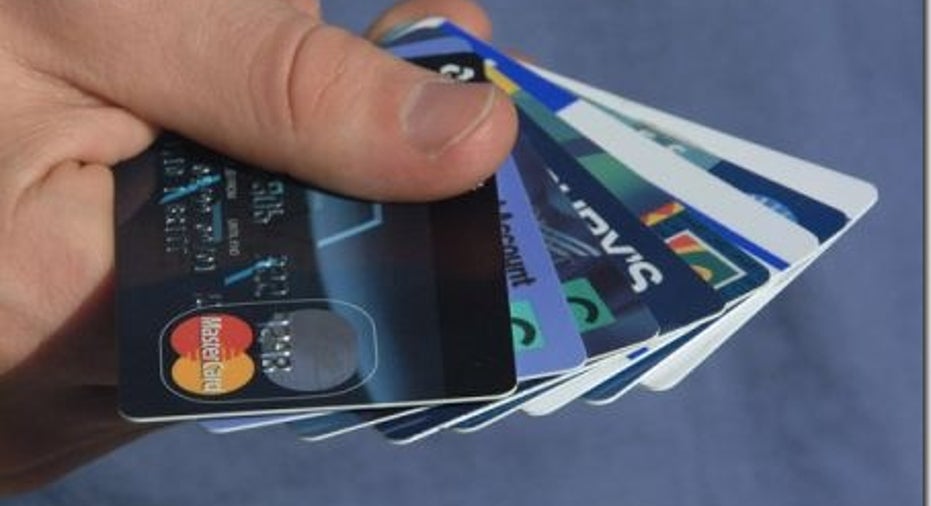Why the CFPB Was Right to Walk Away From Fee-Harvester Battle

So the Washington Post and other sources report that under new director Richard Cordray, the Consumer Financial Protection Bureau is walking away from a plan to curtail large upfront fees on credit cards.
Cordray and the CFPB have gotten some flack for that from critics, but I don't think it's the worst decision in the world.
True, I might be expected to say that, writing this for CardRatings.com, a credit card comparison and credit card news site. I've drunk the Kool-Aid, I'm all for banks making more money from credit card fees, and so on.
But, really, being a consumer as well, I'm looking at this from the consumer's point of view. In the past, I've had plenty of credit card debt, and in fact, co-authored a book a couple of years ago, "Living Well with Bad Credit." I hate credit card fees, and the fewer the better and the lower the better as far as I'm concerned.
But I think this decision by the CFPB is fine. Before I explain why, let's have a little backstory.
CFPB proposed to cap upfront fees
Under the Credit CARD Act of 2009, banks are forbidden from charging fees that total more than 25% of your credit limit during the first year that the account exists. But there's a loophole. Before the card is activated, credit cards can charge whatever fees that they want. There's no limit.
The CFPB last year proposed a rule that would have made those upfront fees count toward the 25% cap, which would have hampered so-called "fee-harvester" cards. But last September, the U.S. District Court in South Dakota allowed a preliminary injunction that stopped the rule from taking effect. The CFPB could have kept fighting for the rule, but they recently backed off and have said they want to reverse the ban.
So now, the worst credit cards -- the ones out of the mainstream, that don't offer rewards or low or normal interest rates and that generally give all credit cards a bad name -- can charge exorbitant upfront fees on what are often called "fee-harvester cards." As the Washington Post put it recently, "These cards typically come with low limits, high fees and interest rates of up to 36%."
I don't like fee-harvester cards any more than the next person, but as someone who used to be drowning in debt -- I declared bankruptcy back in 2008 -- I know that one of the fastest ways to get into debt is to be given easy access to cash.
How I got into debt
One of my downfalls was going to a financial services company, based in London but with branches around the world, that offered loans to people with poor credit. If there had been upfront fees before I was given money, I'm sure I wouldn't have taken out loans from them.
But there weren't any upfront fees, and it was incredibly easy to get money from them. So I'd sign on the dotted line, and they'd give me money. I knew it was stupid, but in trying to stave off bankruptcy, I was desperate to pay off my creditors. Later, of course, a big part of why I was desperate was because I had this giant loan from this financial services company.
I'd pay them a lot of money every month and invariably would need more, and so they'd lend me more, so I could pay off debts, including them. Eventually, I owed them around $20,000, and, well, those were fun times.
High fees discourage casual credit use
So I hate the idea of fee-harvester credit cards, but frankly, if a credit card has an interest rate of 36%, and there are high fees in general, someone with poor credit probably shouldn't be using a credit card like that. If you have poor credit and you want a credit card… well, I want to time travel or have a machine that turns pennies into gold, but you know, we don't always get what we want.
You're better off being a little patient and keeping your head low, paying your bills on time and letting your credit score rise over time until you can get a good credit card, or perhaps in the meantime applying for a reputable secured credit card.
So my thinking is that, as it's been suggested, the CFPB is smart to pick their battles and walk away from this one. I know that some good people will sign up for these fee-harvester cards, but I'm hopeful that if there are high fees upfront, maybe that'll dissuade a great number of impoverished people with poor credit from signing up for them in the first place. It's the predatory lending credit cards that don't have upfront fees but look deceptively attractive that the Consumer Financial Protection Bureau should really be worried about.
The original article can be found at CardRatings.com:Why the CFPB was right to walk away from fee-harvester battle



















